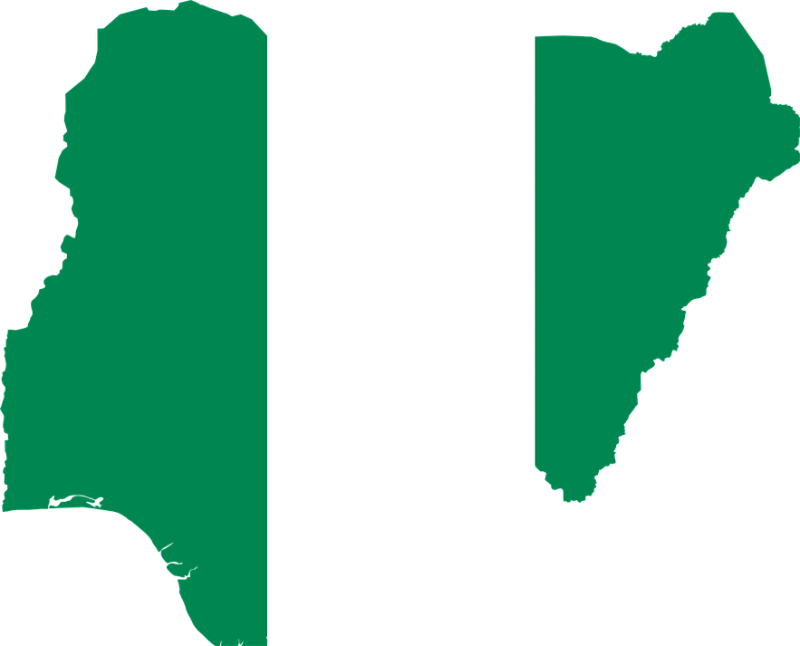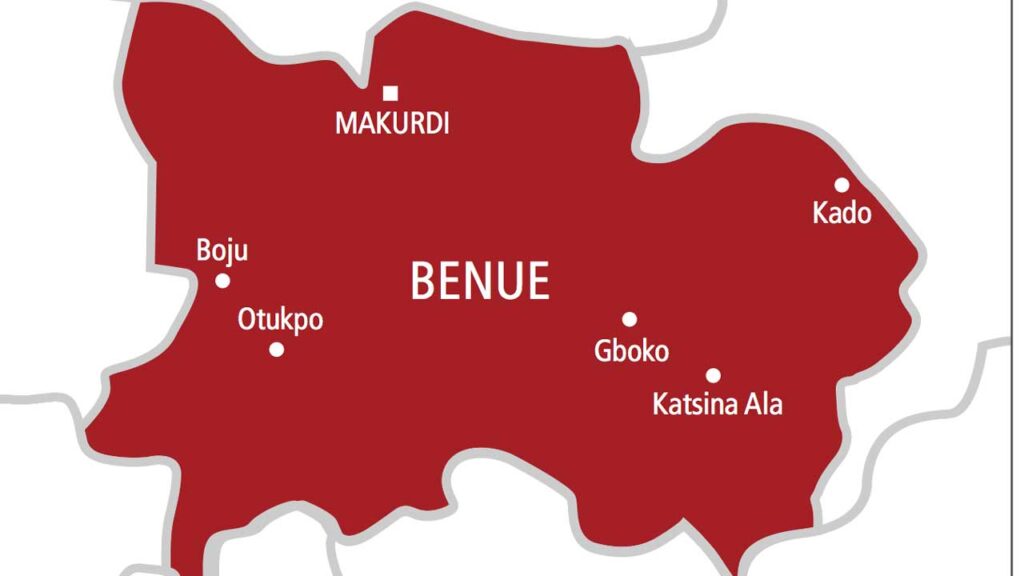Gemanen Ajio Gyuse
Independence Day represents an annual commemoration of the anniversary of a nation’s assumption of independent statehood. While the United States of America celebrates its Independence Day on the 4th of July commemorating the country’s independence from England, Nigeria celebrates its independence every 1st October; a day that marks Nigeria’s proclamation of independence from the British rule in 1960. In light of the foregoing, Nigeria is 63 years today as an ‘independent nation’, hence the celebration by those who want to do so. While fellow compatriots seem to be pretending by celebrating a false Independence Day under a seemingly neocolonialist setting, I rather choose to reflect deeply on the state of my dear state and my country.
Indeed, from our history books, we understand that during colonialism, the colonial administrators were more interested in stripping our dear country off all independent economic and political powers. The development of our agricultural resources, utilisation of the country’s vast natural resources, its industrial and tariff policies, trading relations with foreign countries, etc were left in the hands of the British. On the basis of the disturbing features of colonial economy and administration, which were obviously exploitative in nature and which went hand in hand with alienation of Africans, an independent Nigeria gave all Nigerians a ray of hope since Nigerians thenceforth had to take control of their country’s economic and political administration.

There is no gainsaying that a lot of gains have been recorded since the beginning of self-rule, but again, a lot of regrets too abound. No patriotic Nigerian appears to be extremely proud of the current state of the nation. I read the manual of the Guyanese historian, political activist and academic, Walter Anthony Rodney who demonstrated how Europeans underdeveloped Africa. Today, I doubt if many Africans can agree with Walter Rodney. Due to Africans’ disenchantment, the argument is now on whether or not we are the architects of our problems. Many have reasons to argue on how African leaders have underdeveloped and are still underdeveloping Africa. Personally, I strongly feel that the best way to celebrate Nigeria’s 63rd Independence Day is by doing a critical self-assessment of our life as a nation. Where were we yesterday? Where are we today? And where will we be tomorrow? Does any sane person go on a merry frolic in times of distress and melancholy? While we reflect on the questions above, I will give an overview of my concerns here as a citizen.
As we celebrate today, let us ask ourselves what exactly we are celebrating – kidnappings? Banditry? Ethno-religious divisions across the country? Killings? Political malfeasance? Nepotism? Favouritism? ASUU strikes? NLC strikes? Perversive injustice? Judicial rascality? Inability to conduct simple elections in a transparent and fair manner? Religious fundamentalism in the North? Poor educational system? Poor health system? Poor economic policies? Corruption in high places? Poverty among citizens and destitution? etc.
For some of us who were not there during the colonial rule but who had the opportunity to peruse some history literatures, we can conclude that the leadership style today is neocolonial in nature because it seems not to be completely different from what was happening in the old colonial days, except that the exploitation, subjugation, alienation, wickedness, dehumanisation etc are being perpetrated by our own black brothers and sisters. Instead of using the ‘richness’ of our different religions, cultures, socio-political orientations and natural resources for the growth and development of our dear country, these factors rather trigger disaffection and setback among the Nigerian citizens.
Our leaders today seem to be more interested in accumulating wealth and propelling our nation to the abyss than finding solutions to our miserable conditions. The destruction of every fabric of our society by the very people we entrust the leadership of our country in their hands appears to cut across all institutions in the land. Our justice system that is supposed to be the hope, not just of a common man, but of all patriotic citizens is regrettably destroyed too, thereby degenerating our problems in the country. Indeed, the agitations across the length and breadth of Nigeria today are presumably triggered primarily by the ineffectiveness of our justice system. Of course, in any society where citizens begin to sense that they cannot get justice in the conventional judicial system, they ressort to self-help. In Nigeria today, citizens are treated like aliens by the leaders. Today, the life of a common man is characterised by frustration and depression; hence desperation is on the rise. The welfare of citizens does not matter. Policies that are most heinous are rolled out against the citizens and to their perils and no one cares how the most affected citizens fare in such conditions. Democracy in Nigeria now wears a despotic appron. Our democratic leaders behave more or less like despots and life has become exceedingly unbearable for an average Nigerian. In all honesty, can such a tense, depressive, reprehensive and perilous atmosphere allow for a merry frolic in whatever guise? People celebrating must be joking, right?

Before proceeding, let me quickly come back home to my dear Benue State, created over 47 years ago, but still dilly-dallying in all ramifications. We seem to have remained stagnant over the years and as a Benue-born, this adds to my apathy about Independence Day celebration. Though the present Fr. Alia-led administration seems to have brought renewed hope in the Benue project especially in terms of salary payment, which has been a mirage in the state, I cannot holistically assess it for now as it has just began. But, with our past experiences, we have not been lucky with leadership in Benue at all. Because of poor leadership style of our past leaders, the Benue youths who are seemingly the most educated and talented in the whole of North Central Nigeria have been frustrated for so long. To an extent, some have ressorted to all kinds of crime, while some who are even degree holders have ressorted to leaving the state for degrading jobs of security watchmen in Lagos, Abuja and even Lafia manning gates in hotels, offices and people’s residences — what was hitherto reserved for the illiterates. Some of our ladies have left Benue in search for means of survival to the extent of sometimes engaging in unwholesome acts, albeit reluctantly. They are not always happy with what they do, but because life’s challenges have become unbearable for them in Benue due to the ineffectiveness of our past leaders, they have to ressort to other means of survival. Besides, not too long ago, kidnapping has been on the prowl in Benue (a once peaceful home for all) and this, to me, may not be far from the failure of our systems at both the national and state levels. Anyway, delicate issues like security are not for social media forums so I stop here, but I earnestly pray that my dear brother from Vandeikya, the current Benue State Governor, Rev. Fr Alia learn a lesson from this gloomy picture I have attempted to paint here in order to take our state out of the doldrums. In all, the most important thing is that, the happenings around us should rather call for a more sober reflection than engaging in any kind of ceremony on this day.
Indeed, talking about our national life, some of us are pained today because every facet of our existence as a people has been drastically eroded under the watch of our indigenous leaders. One then wonders if embarking on a merry frolic on a day like this is an act of misplacement of thoughts or genuine love for the country. If our forefathers fought the colonialists against exploitation of our natural resources, how have we harnessed these natural resources for the growth and development of our nation over the past 63 years? If our forefathers fought against general colonial injustice, in what ways have our indigenous leaders proven to be different? Rather, they keep looting the country and saving the same loot in foreign banks, thereby strengthening the economy of the West to the detriment of ours.
The question we must not cease to reflect on today, 1st October 2023 should be ‘what exactly is the basis for the celebration of the Independence Day, when we are indirectly undergoing some forms of neocolonialism, and still having the chains of slavery leashed on us by our leaders and the West?’ To me, for this day to be celebrated in the true sense of the word, our leaders must, henceforth be seen to be making frantic efforts to deliver selfless service to the people. They must start emphasising the Nigeria Project rather than SELF. They must ensure that Nigeria and Nigerians start benefitting truly the dividends of democracy in line with the dreams, yearnings and aspirations of our past heroes, who fought for the so-called Independence we seem to be celebrating today. These may be achievable in many ways including, but not limited to the following:
1. Strengthening of our institutions. Nigeria ought to have better and stronger institutions devoid of individual leader’s influence, than what we have today. For instance;
(a) EFCC should not be operating based on the dictates of the presidency where a particular ruling party would publicly ‘wash away’ the sins of financial criminals once they join the ruling party.
(b) INEC should be completely independent as the name implies. The situation where INEC would propose some vital electoral reforms only to be turned down by the presidency or any other arm of government should be discouraged.
(c) the judiciary ought not to operate under the present influence by the Executive arm of government. Justice should not be gotten only through the dictates of the heads of governments.
2. Leadership of the three arms of government should not be based on party affiliations and the 3 Arms ought to be independent of each other. It’s a pity that most state legislative arms are now simply rubber stamps. No legislation, no sound representation, no checks on the activities of the executive arm etc. States and NASS that are supposed to be the pillars of democracy are now being used against the people. This must not be allowed to fester.
3. Competence and performance: the idea of selecting a buffoon from a particular zone just because ‘this is zoned here or there’ should not necessarily take priority. The act of leadership should be based on one’s competence and what one has in store for the development of our dear states and country. We have experimented enough and we ought to be pragmatic if we need to grow beyond our current situation.
4. Dogmatism of whatever sort must be jettisoned: Obstinately, stubbornly and unreasonably holding to one’s political, cultural or religious opinions must not stand in our way if we must move forward. We have many who do not care to understand whoever that holds different political or religious opinions from them. Once you are not a PDP, APC, Labour Party, or APGA member, whatever competence you possess is not considered. This is one of our undoings.
5. Sincerity to one another: we must be sincere to ourselves, especially to our leaders. The act of standing aloof when our voices are needed most or telling our leaders lies for selfish gains is one of the factors compounding our situation in the country. No leader is ubiquitous and our sincerity in telling them the truth would help in no small measures.
6. Above all, I implore the youths to try and know their worth in the society. Youths are the live wire of any society. Determined youths can change the narrative of their society, but docile and naive ones will rather ruin both the current and future gains of the country.
There is still hope for Nigeria and Nigerians irrespective of all odds, so GOD BLESS NIGERIA AT 63 !
Long live the Federal Republic of Nigeria!
Long live Benue State!
Gemanen Ajio Gyuse a Public Affairs Analyst writes from Benue State.















